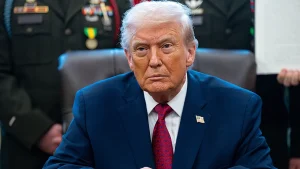Belarus Releases American Political Prisoners in Apparent Diplomatic Overture
Lukashenko’s Strategic Gambit: American Detainees Freed as Belarus Seeks New Chapter with Washington
In a significant diplomatic development that has captured international attention, Belarus has released several American citizens who had been detained on various politically motivated charges. This unexpected move comes as Aleksandr Lukashenko, Belarus’s long-serving authoritarian leader and a close ally of Russian President Vladimir Putin, appears to be maneuvering to reset relations with the United States, particularly with an eye toward the incoming Trump administration. The prisoner release, described by analysts as a calculated diplomatic gesture, represents one of the most tangible signs of Lukashenko’s foreign policy recalibration after years of isolation from Western nations and increasing dependence on Moscow.
The freed Americans, whose identities have been confirmed by the U.S. State Department but are being withheld at the request of their families, had been held under conditions that international human rights organizations had repeatedly condemned. Some had been imprisoned for over two years on charges ranging from alleged espionage to violating Belarus’s increasingly restrictive laws on public assembly and free speech. Their detention had become a significant point of contention between Washington and Minsk, with multiple diplomatic initiatives to secure their release previously ending in failure. “These individuals have endured unconscionable hardship under a legal system that lacks transparency and due process,” remarked a senior U.S. diplomat involved in the negotiations, speaking on condition of anonymity due to the sensitive nature of the ongoing diplomatic exchanges. “Their release, while long overdue, is a welcome first step toward addressing the numerous human rights concerns that continue to plague Belarus.”
Historical Context: Belarus-U.S. Relations Through Decades of Turbulence
The relationship between Belarus and the United States has weathered numerous storms since the former Soviet republic gained independence in 1991. Following Lukashenko’s rise to power in 1994, what began as cautious diplomatic engagement gradually deteriorated into deep mutual distrust as his government consolidated control over Belarus’s political institutions, media landscape, and civil society. The relationship reached a particular low following the disputed 2020 presidential election, which sparked unprecedented protests across Belarus and was followed by a sweeping crackdown on dissent that saw thousands arrested and many opposition leaders either imprisoned or forced into exile. The Biden administration, in coordination with European allies, responded with substantial sanctions targeting key sectors of the Belarusian economy and numerous officials within Lukashenko’s inner circle. These measures, combined with Belarus’s support for Russia’s invasion of Ukraine, had effectively frozen diplomatic channels between the two nations until this recent thaw.
“Lukashenko has demonstrated remarkable political resilience throughout his nearly three decades in power,” explained Dr. Elena Korosteleva, Professor of International Relations specializing in Eastern European politics. “While he has previously attempted to balance relations between Russia and the West, his dependence on Putin deepened significantly after 2020 when the protest movement threatened his hold on power. This prisoner release suggests he’s once again seeking to create some diplomatic space between himself and Moscow, albeit carefully and without fundamentally altering his most important strategic relationship.” Indeed, the timing of this gesture appears deliberately calibrated to coincide with the political transition in Washington, suggesting Lukashenko sees an opportunity to potentially negotiate a reduction in sanctions and begin normalizing relations under the incoming administration, which has signaled a different approach to several international relationships.
The Human Cost: Stories of Americans Caught in Belarus’s Political Machinery
Behind the diplomatic calculations and geopolitical maneuvering lies the human reality of those who have been detained in Belarus’s notorious prison system. According to testimonies gathered from previously released prisoners and compiled by international human rights organizations, conditions in these facilities fall far below international standards, with reports of psychological intimidation, inadequate medical care, and in some cases, physical mistreatment. The Americans released this week join a small but significant group of Western citizens who have been detained in Belarus in recent years, often used as bargaining chips in Lukashenko’s dealings with Western nations. Their experiences, while not yet fully disclosed, are expected to provide further insights into how the Belarusian government processes work and the treatment of political prisoners in a system that human rights defenders have described as increasingly brutal in its methods.
“Political detentions in Belarus rarely have anything to do with genuine legal infractions,” said Rachel Denber, Deputy Director of Human Rights Watch’s Europe and Central Asia Division. “They’re tools of state policy, designed to silence critics, intimidate civil society, and provide the regime with leverage in its international dealings. The detention of foreign nationals, particularly Americans, serves as both a warning to others and as valuable assets that can be traded when politically expedient.” Family members of the released Americans have expressed profound relief while also requesting privacy as their loved ones undergo medical evaluations and begin the process of reintegrating into normal life after their ordeal. State Department officials have confirmed that specialized support services are being provided to assist with both physical and psychological recovery, acknowledging the significant trauma that often accompanies such detentions.
Russia’s Shadow: Putin’s Influence on Belarus’s Foreign Policy Calculations
The prisoner release raises important questions about the relationship between Belarus and Russia at a time when both nations face significant international pressure. Belarus has been increasingly dependent on Russia economically, politically, and militarily, particularly since 2020 when Putin provided crucial support to Lukashenko during the protest movement that threatened to topple his regime. This dependency deepened further after Belarus allowed its territory to be used as a staging ground for Russia’s invasion of Ukraine, leading to additional Western sanctions and even greater international isolation. Analysts are now debating whether Lukashenko’s apparent diplomatic overture toward Washington represents a genuine attempt to create some distance from Moscow, or whether it is a move coordinated with the Kremlin as part of a broader strategy to reduce pressure on both regimes.
“The relationship between Lukashenko and Putin has always been complex,” noted Dr. Alexander Cooley, Director of Columbia University’s Harriman Institute for Russian, Eurasian, and East European Studies. “While Lukashenko is undoubtedly dependent on Russian support, he has historically resisted complete subordination to Moscow’s interests and has occasionally used outreach to the West as leverage in negotiations with Putin. The current situation is particularly delicate, as Lukashenko must balance his need for sanctions relief with the reality that any significant pivot toward the West could provoke a harsh response from the Kremlin.” Intelligence sources suggest that Putin has been informed of Lukashenko’s diplomatic initiative but may have limited ability to block it given Russia’s own need to maintain Belarus as a stable ally amid its ongoing war in Ukraine. This complex dynamic highlights the intricate balancing act that Lukashenko continues to perform on the international stage, seeking to preserve his regime’s independence while navigating between powerful and often competing external forces.
Looking Forward: Implications for Regional Stability and Human Rights
While the release of American detainees represents a potentially significant shift in Belarus-U.S. relations, substantial obstacles remain before any meaningful normalization can occur. The Belarusian government continues to hold thousands of political prisoners, including prominent opposition figures, journalists, and civil society activists whose only crime was challenging Lukashenko’s authority or documenting his government’s abuses. The country’s human rights situation remains dire, with independent media effectively eliminated, civil society organizations declared “extremist” and forced underground or abroad, and ordinary citizens facing arrest for even modest expressions of political dissent. These fundamental issues, along with Belarus’s role in supporting Russia’s war against Ukraine, present formidable challenges to any substantial improvement in relations with Western democracies, regardless of who occupies the White House.
“The release of American prisoners, while welcome, should not be mistaken for genuine political reform in Belarus,” cautioned Franak Viačorka, a senior advisor to exiled opposition leader Sviatlana Tsikhanouskaya. “Lukashenko’s regime continues its brutal repression of the Belarusian people while seeking international legitimacy through tactical concessions. Any engagement with Minsk must prioritize the release of all political prisoners and a genuine democratic transition.” As diplomatic channels tentatively reopen, the international community faces difficult questions about how to respond to Lukashenko’s apparent overtures. Policymakers must weigh the potential benefits of increased engagement against the risk of legitimizing an authoritarian regime with a documented pattern of human rights abuses. The coming months will reveal whether this prisoner release represents the beginning of a substantive diplomatic breakthrough or merely a tactical maneuver by a regime skilled at making minimal concessions to achieve maximum benefit on the international stage.










